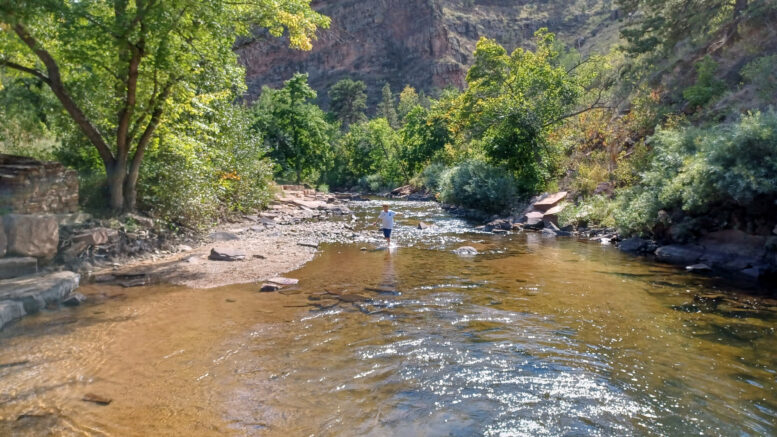Businesses and governments required to pay water-quality permitting fees may see those fees rise more regularly and with fewer legislative requirements under a bill that is set to be introduced in the coming days in the Colorado Legislature.
The proposal, backed by the Colorado Department of Public Health and Environment, would remove specific water-quality permitting fees from state statute by 2026 and allow the Colorado Water Quality Control Commission to set them as rules after that time. The exact amounts that the state would charge on everything from construction-sector permitting fees to on-site wastewater treatment system design-review fees still would have to be approved by the Joint Budget Committee, but they likely would get less legislative scrutiny than they do now.
Over the past 20 years, legislators have passed laws to change the fees only “in times of crisis,” often making the fee-setting process a rushed one that doesn’t consider the full needs of the water-quality control division, director Nicole Rowan said during a stakeholder meeting Monday. Members of the powerful JBC began expressing to division leaders last fall that they wanted them to come up with a long-term funding plan, which in turn led to the current proposal, CDPHE legislative liaison Lindsay Ellis said.
Under that proposal, whose Senate sponsors are still to be determined, the water quality control division would get a one-time 8% increase in fees through 2025 that would account for inflation and raise $540,000 more in clean-water fees and $30,000 in drinking-water fees. It also would modify the members of the CWQCC to ensure the nine-person body has no more than five members from the same party and that its members bring certain experience to the table, and that commission then would set about creating new fees.
More holistic process?
Rowan and Ellis said that being able to discuss the operational revenues needed each year with the CWQCC would create a more accountable and holistic process and would replace what now can be a short burst of frenzied lobbying with a more thoughtful discussion. The long-term increase in the fees could reduce the current permitting backlog and would help the division to have the resources in place as more drinking-water regulations come down from the federal government, Rowan said.
“Our history over the last 20 years has been that we have had to be in a state of complete fiscal crisis to get our fees moved,” Rowan said. “We think the process we have outlined here is one where we would be able to be a bit more stable.”
Industry and municipal leaders, however, worry that making it easier for the division to raise fees conversely could lead to more regulatory instability, particularly if companies and governments are faced with the prospect of having to pay more every year. And they questioned during Monday’s meeting why the state is rushing to pass a bill before the adjournment of the legislative session in early May, when the General Assembly has other major issues from affordable housing to the re-definition of harassment on its plate.
Permit fees pay for about one-third of the water-quality division’s permitting work, with the Legislature typically covering the rest from its general fund. CDPHE assesses the fees on industries that process and discharge high amounts of water, particularly in the natural-resources and construction sectors.
Affected industries
Coal and hard-rock miners, oil-shale companies, power plants, sugar processers, petroleum refiners, fish hatcheries and manufacturers all must pay for annual permits for the specific water usage they have, and construction companies pay various amounts based on their discharges. Private utilities and industrial firms must have permits based on their sewage discharge, and the permit fees extend to operators of municipal stormwater systems, wastewater treatment plants and community water systems, which specifically must pay drinking-water fees.

Cherry Creek flows through Castlewood Canyon State Park in Douglas County.
A 2017 law required that CDPHE conduct a stake-holding process before working with the Legislature to seek any fee hike, and several business-group leaders and representatives said they didn’t feel that the 40 one-on-one meetings the department has conducted since December meet that definition. Without a variety of fee payers being in the room together to hear feedback and get their questions answered, the public process so far has been lacking, said Justine Beckstrom, partner at Vranesh and Raisch LLP in Boulder.
Heather Stauffer, legislative advocacy manager for the Colorado Municipal League, said she worried that allowing the CWQCC to raise fees more easily could make the Legislature feel relieved of its burden to fund the permitting system and could lead to a decrease in general-fund contributions. In the same way, several other meeting participants worried that combining all the existing streams of revenues into one new clean-water cash fund, as the bill suggests, could leave the larger fund open to raiding by the Legislature in years of general-fund shortfalls.
But the biggest concern seemed to be that moving fee-raising out of the legislative process and into an administrative process will allow for more frequent fee hikes that will make it harder for companies to plan from year to year what they will owe the state. The affected fees range anywhere from $75 to $31,814, and quicker and more dramatic shifts could be a financial burden on companies, some worried.
“In 2016, there was a very strong sentiment that entities wanted these fees to remain in statute, for both accountability and regulatory consistency,” Beckstrom said. “With a move to rulemaking, it could change a lot more often than it could in statute.”
Ellis added that she expects there to be more stakeholder meetings as the bill progress through the legislative process.
